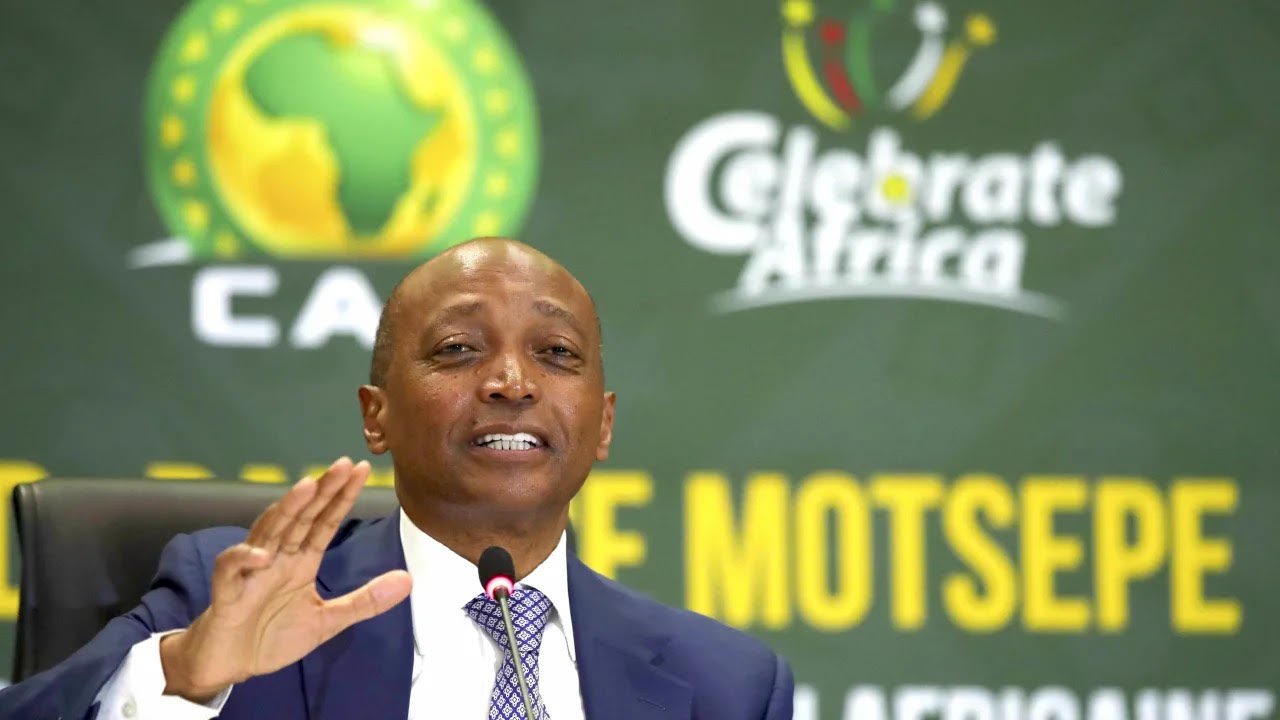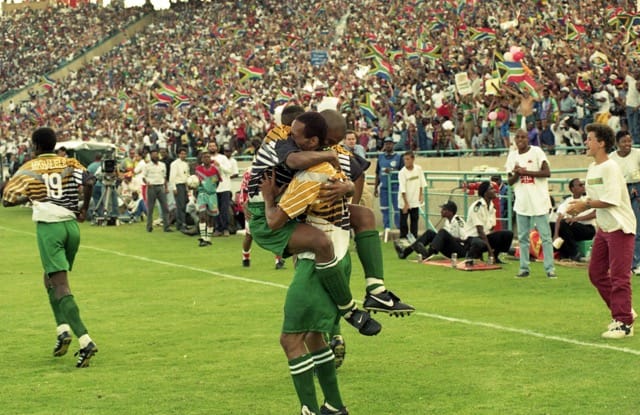In Africa, women’s football is achieving significant advancements, marked by a surge in female players, coaches, and referees participating in the game.
The Confederation of African Football’s inaugural Women’s Football Landscape report revealed a notable increase, with 150 653 registered female players, 4 140 female coaches, and 4 724 female referees under CAF.
Furthermore, 47 out of 54 countries in the continent boast women’s national teams, signifying a transformative shift toward making the traditionally male-dominated sport more inclusive and embracing all genders.
The survey across 52 football associations revealed that most (71%) had implemented grassroots programs to cultivate budding talent. In a remarkable strategy, 82% of these associations have partnered with schools to provide young footballers with a nurturing platform to hone their skills.
This momentum is sustained as the youngsters grow into national leagues and competitions.
Since assuming the role of CAF President in March 2021, Dr. Patrice Motsepe has enforced strategies to advance women’s football, fostering increased participation and leadership both on and off the field.
In the official report, Motsepe said, “At CAF, we have dedicated significant human and financial resources to develop and improve the quality for our female players, coaches, referees, administrators and other football stakeholders. The increasing popularity of women’s football in Africa and globally is an indication of its potential and unique power to contribute to uniting people from different racial, ethnic, religious and cultural backgrounds.”

CAF’s commitment is also evident in the 2021-2025 Action Plan, resulting in substantial prize money and widespread participation in events like the African Schools Football Championship:
- $1.55 million prize money for the CAF Women’s Champions League
- $2.4 million prize money for the Women’s Africa Cup of Nations
- 180k girls participating in African Schools Football Championship
Impact of Sponsorship & Investment
Apart from CAF’s devotion in the pathway to advancing women’s football, government and private sector support also played a part in fuelling the continent’s women’s game, reflected in increased sponsorships and government backing for women’s leagues. Collaboration between these sectors signals a promising future, with the belief that African women’s football is on the path to self-sustainability.
Impact of Increased Stadium Support & Fan Engagement
Zooming in on the 2022 Women’s Africa Cup of Nations, stadium attendance records underscored the growing popularity of the women’s game, setting incredible attendance records during the semi-final and final matches. The semi-final held a crowd of 45 562 between Morocco and Nigeria, with the final beating that record with more than 50 000 spectators in attendance at the Prince Moulay Abdellah Stadium between the hosts and Banyana Banyana.
The escalating support reflects a burgeoning interest in women’s football, paving the way for a future in which women’s football routinely fills stadiums to capacity.
Africa Grabbing Global Attention
At the 2023 FIFA Women’s World Cup, Africa’s run at the global showpiece was nothing short of extraordinary with three African teams – Nigeria, South Africa and Morocco, reaching the Round of 16 for the first time ever and showcasing the continent’s rising prowess.
Nigeria qualified unbeaten, South Africa securing a historic win over Italy, while debutants Morocco became the lowest ranked team to reach the knockout stage.

Growth Areas
Development
- Organise zonal instructors courses to increase the number of coaching workshops that can be delivered across Member Associations
- Identify a pool of former players and provide them with education and pathways in football at all levels
- Engage with schools to participate in regular competitions
Marketing and Promotion
- Create dedicated women’s football communication strategies covering competitions and development
- Identify and create a pool of communications experts across Africa to support the communication strategy
- Create a specific commercial strategy for women’s football leveraging digital assets, competitions, development programs and brand values
Professionalisation and Leadership
- Organise capacity building courses for women in football across Africa to enhance administration and leadership skills
- Review the existing regulatory framework to identify opportunities to increase the number of women in decision making bodies
- Harness the CAF club licensing regulations to increase the participation in women’s football and drive professionalisation of the women’s game
Social Impact
- Highlight the success stories of women’s football and women in football to inspire, encourage and improve the image of the game
- Incorporate social messaging and educational elements into grassroots development programmes
- Create dedicated legacy programmes linked to CAF women’s competitions.

Way Forward
South Africa’s bid to host the 2027 FIFA Women’s World Cup could mark a historic moment, bridging the gap between Africa and the rest of the world.
Bringing the tournament to Africa would provide an enormous boost for the development of women’s football across the continent, as South Africa is aiming to make history becoming the first African nation to host this prestigious global tournament.
With world-class stadiums and infrastructure already in place from the 2010 men’s World Cup, South Africa presents a compelling case to finally host the women’s World Cup spectacle.
The upcoming CAF Women’s Champions League in Cote D’Ivoire in November 2023 is poised to contribute to the growth of female players and clubs in Africa.






No Comments